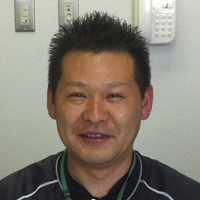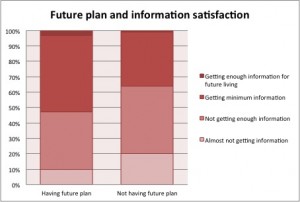
Teams at a camp held to develop local businesses debate late into the night
The notion that going to Tohoku means volunteering which means physical labor no longer applies. People are heading to the disaster-affected areas for different reasons and in different ways.
One of these is sightseeing. People from outside the affected regions were hesitant to visit thinking it may not be appropriate, but now the idea that visiting and enjoying yourself can be a form of support has become more common. A three-month campaign from April to June promoting travel to Iwate Prefecture resulted in visitor numbers return to levels close to those before the tsunami, and bus tours to coastal regions were more popular than expected.
Also popular and not just limited to Iwate are study tours – a combination of sightseeing and study where people visit coastal areas and listen to stories by residents while enjoying local seafood.
Another change that can be seen among visitors to Tohoku is the voluntary support of businesses and projects. People wanting to contribute to what is needed most at the moment, or wanting to make use of their skills to help, are influencing the format of tours.
An event run by Skillstock, a skills matching website, was held in early July and assisted by VolunteerInfo, a non-profit organization based in Sendai. 10 people from Tokyo who took part in the camp presented their ideas on training, commercialization and sales methods for a project involving people living in temporary housing in Ishinomaki City and Sendai City of Miyagi Prefecture.
Reiji Yamanaka, a lecturer at Graduate School of Management, Globis University, organized a camp in April this year in which students visited various areas in Minamisanriku Town and researched what kind of local projects are necessary. Participants made a meaningful contribution to recovery of affected areas while improving their business development skills. Using facebook to attract support from local residents, the group has already begun moving on a project focusing on sales of local specialties.
Nearly a year and a half on since the Great East Japan Earthquake, the ways in which people take part in recovery have expanded, and the number of visitors from outside the region looks set to increase more so.
(Translated by Nate Hill)
Tweet




